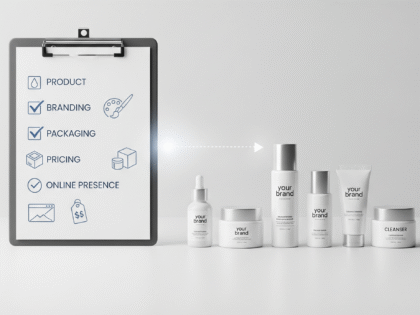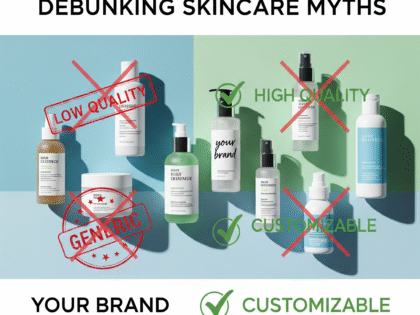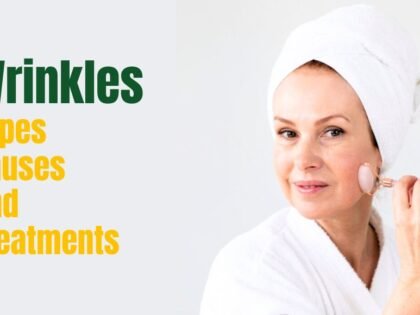Benefits and Uses of Saffron for Skin Whitening

Saffron, also known as “The Golden Spice” or “Kesar”, is considered to be one of the most valuable herbs for glowing skin. Obtained from the flower of the “Crocus Sativus” plant or “Safron Crocus”, it is considered to be the most expensive spice in the world because it takes exceptional time and effort to cultivate and harvest it. It is estimated that it takes around 75,000 flowers to produce just one pound of Saffron, making it extremely expensive.
The spice obtained its name the golden spice due to its unique reddish-orange color. Since ancient times, it has been cherished for various purposes from being used as a spice to medicinal plant. However, due to its increased therapeutic characteristics, it has retained its place in modern cosmetics. It is the only spice that has retained its reputation as a luxurious spice, keeping it a landmark in the skincare industry. The following blog explains the proven benefits of saffron and tips on how it could be incorporated into your skincare routine.
Benefits of Saffron for Skin Whitening
Saffron has a special cultural significance in Asia and Persia where it is harvested for holiday recipes, wellness teas, and fabric dyes. It is also used as a medicinal plant in Pakistani and Indian ayurvedic rituals, and in many Arab and Persian communities, and there’s science to back up its benefits.
In skin care, the sunset-red spice is considered to be the most powerful flower with four notable anti-oxidants that help protect skin from free radicals per the report of the National Insitute of Health.
1- Neutralizes Environmental Damage to Skin
Environmental aggressors such as ultraviolet (UV) radiation, including UVA and UVB, and pollution generate free radicals, leading to oxidative stress in the skin. Another impact that the environment can leave on the skin is photoaging, skin aging caused by UV exposure. According to a review of Nutrition Today, saffron has antioxidant properties that ron has antioxidant properties that have the potential to help the skin in combating oxidative stress. Crocin and crocetin in saffron are particular components that can help neutralize these free radicals, thereby protecting the skin from sun damage.
2- Reduces Skin Inflammation and Redness
Moreover, saffron exhibits significant anti-inflammatory properties, making it beneficial for reducing skin redness, irritation, and puffiness proven by Several studies, including those in the “International Journal of Antimicrobial Agents. Compounds like crocin and safranal inhibit the release of pro-inflammatory cytokines, thereby soothing inflamed skin. This makes saffron a remedy for conditions such as eczema, atopic dermatitis, and Rosacea, a skin condition characterized by facial redness and inflammation.
3- Reduces the Signs of Aging
According to a peer-reviewed lab study from the Shangai 9 People’s Hospital, saffron protects the skin against ultraviolet A (UVA) radiations that cause premature skin aging. Likewise, the same hospital in another study found that saffron has defensive properties against ultraviolet B (UVB) rays, which also—together now—reduce signs of aging. The antioxidant-rich composition of saffron not only protects against environmental damage but also promotes collagen synthesis, enhancing skin puffiness and reducing the appearance of wrinkles. Hence, saffron helps keep your skin firm and youthful.
4- Helps Lighten and Brighten skin
Saffron has been traditionally used to enhance skin complexion. Its active compounds inhibit tyrosinase, an enzyme responsible for melanin production, leading to a reduction in dark spots and a more even skin tone. Regular use of saffron-infused skincare products can result in a naturally brighter and more radiant complexion
5- Treats hyperpigmentation
Adding further, saffron can be used to manage acne-induced post-inflammatory hyperpigmentation (PIH), a condition of the skin characterized by dark patches on the skin, by modulating melanin synthesis. Moreover, vitamin C in saffron also aids in preventing pigmentation by promoting wound healing. It also offers some defense against UV-induced damage, helping curb sun-related hyperpigmentation. This leads to a more uniform skin tone and improved skin clarity.
6- Provides Moisturization and Hydration to Skin
Hydration is the basis of healthy skin, and saffron doesn’t disappoint. Its moisturizing properties help maintain the skin’s hydration levels, giving you that coveted, dewy, supple look. Moreover, saffron is known for improving skin texture, lending it a smoother, more refined appearance aimed at combating dryness.
7- Acne treatment and prevention
Along with anti-oxidant and anti-inflammatory properties, Saffron contains natural compounds that possess antibacterial properties. These substances work to fight acne-causing bacteria on the skin’s surface, which lowers the likelihood of developing new breakouts and speeds up the healing of current ones.
8- Restores Skin Texture
Last but not least, saffron contains Vitamin B (Riboflavin) which helps in improving skin texture and promoting skin cell revitalization. As new cells reach the skin’s surface and old, damaged cells are shed, the skin often appears smoother and more radiant. Further, it helps in reducing dullness, uneven skin tone, and roughness, making the skin look smoother and softer. The exfoliating properties of saffron promote the removal of dead skin cells, facilitating skin cell renewal. This process results in smoother skin texture and a reduction in roughness, contributing to a more refined and even appearance.
Uses of Saffron for Skin Whitening
Incorporating saffron into your daily skincare routine can significantly enhance your skin’s radiance and overall health. Consistency is key to unlocking its full potential. Here are effective methods to integrate saffron into your regimen
1. Saffron-Infused Oils
Creating a saffron-infused facial oil is a luxurious way to nourish your skin. To prepare, soak a few strands of saffron in a carrier oil such as almond or jojoba oil. Allow the mixture to sit overnight, enabling the saffron’s beneficial compounds to infuse into the oil. Apply a few drops to your face and neck, gently massaging in upward circular motions. This practice can enhance skin circulation and elasticity and impart a natural glow.
2. DIY Saffron Face Masks
Saffron can be combined with natural ingredients to create effective face masks
- Milk, Saffron, and Honey Mask: Soak a few strands of saffron in two tablespoons of milk until the milk takes on a yellow hue. Add one tablespoon of honey and mix well. Apply the mixture evenly to your face and neck. Leave it on for 15-20 minutes before rinsing with lukewarm water. This mask combines the moisturizing properties of honey and milk with saffron’s skin-brightening effects, promoting a hydrated and luminous complexion.
- Yogurt and Saffron Paste: Mix a few strands of saffron with two tablespoons of plain yogurt. Let it sit for a few minutes to allow the saffron to infuse. Apply the paste to areas affected by hyperpigmentation or dark spots. Leave it on for 15 minutes before rinsing off. The lactic acid in yogurt aids in gentle exfoliation, while saffron helps lighten dark spots, resulting in a more even skin tone.
- Saffron Toner: Soak a few strands of saffron in half a cup of rose water for several hours. Then, use a cotton pad to apply the toner to your face after cleansing. Do not rinse off. This toner helps refresh and brighten the skin, leveraging saffron’s antioxidant properties and rose water’s soothing effects
- Saffron and Aloe Vera Face Pack Combining saffron with aloe vera gel creates a soothing face pack. Mix a pinch of saffron strands with two tablespoons of pure aloe vera gel. Apply the mixture to your face, focusing on inflamed or irritated areas. Leave it on for 15-20 minutes before rinsing with cool water. Aloe vera’s anti-inflammatory properties complement saffron’s skin-brightening effects, helping to reduce blemishes and soothe the skin.
3- Saffron-infused Skincare Products
Incorporating commercially available saffron-infused toners or mists can be a convenient addition to your skincare routine. These products often combine saffron with other beneficial ingredients to enhance skin radiance and hydration. Regular use can contribute to a more even and glowing complexion. Base Natural laboratory-certified serum is specially formulated to combat acne, dryness, and dullness, helping you achieve radiant, healthy skin. Perfect for pairing with your sunscreen routine for all-day protection and nourishment!
Bottom line
In summary, saffron is a miraculous herb when it comes to skin problems and their solution. It not only brightens the skin and reduces dark spots but also combats the signs of aging. Nonetheless, it is essential to use saffron consistently and correctly to gain the best outcomes. Always perform a patch test to avoid irritation or allergic reactions. Discover more Saffron Skincare Secrets.







